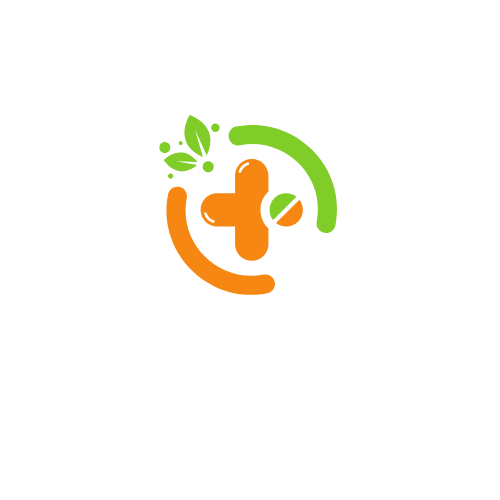Sovereignty debates are like the ultimate game of tug-of-war, where nations pull on opposing ends of the rope, each trying to assert their power and control. It’s a fascinating clash of ideals, where concepts of autonomy, governance, and global influence collide. Who knew politics could be this dramatic?
As countries grapple with issues like self-determination and international law, the stakes couldn’t be higher. Whether it’s a tiny island nation seeking independence or a superpower flexing its muscles, these debates reveal the complexities of modern governance. So grab your popcorn and get ready to dive into the whirlwind of opinions, strategies, and a sprinkle of humor as we explore the riveting world of sovereignty debates.
Table of Contents
ToggleOverview of Sovereignty Debates
Sovereignty debates revolve around the tension between national interests and global cooperation. Countries assert their authority while balancing the need for international collaboration. Autonomy often clashes with globalization, creating a complex landscape of opinions and legal frameworks. Each nation navigates issues of self-determination, impacting local governance and international relations.
Self-determination remains a key principle in these discussions. Numerous cases illustrate how regions pursue independence or greater autonomy, sometimes leading to conflict. In Europe, for example, the Catalan independence movement highlights the struggle for recognition among established nations. Additionally, movements in regions like Scotland and Kosovo signify similar desires for sovereignty.
International law plays a crucial role in mediating these debates. The United Nations outlines various protocols regarding territorial integrity and self-governance, creating parameters for conflict resolution. In this context, countries often leverage international agreements to support their claims, influencing the dynamics of sovereignty negotiations.
Power dynamics further complicate the scenario. Major powers exert influence over smaller nations, sometimes bending the rules to maintain control. Heftier nations, like the United States and China, impact global policies, shaping the conversations around sovereignty in the process.
Navigating sovereignty debates is essential for a deeper understanding of global affairs. These discussions evoke questions about governance structures, citizen rights, and the role of international entities. Engaging with the nuances of sovereignty reveals the complexities inherent in contemporary global relations.
Historical Context
Sovereignty debates have evolved significantly over time, shaped by historical events and changing ideologies. Understanding this context highlights the complexities involved.
Development of Sovereignty Concepts
Sovereignty concepts have ancient roots, emerging from the need for political authority and control. Early civilizations, such as Mesopotamia and Ancient Rome, established systems that recognized territorial rights. The Treaty of Westphalia in 1648 marked a pivotal moment, introducing state sovereignty and laying the groundwork for modern international law. This treaty emphasized the importance of recognizing nations’ rights to govern themselves without external interference. Enlightenment thinkers further shaped these concepts, advocating for individual rights and self-determination. As a result, the evolution of sovereignty reflects a gradual shift towards state recognition in the global arena.
Major Historical Events Influencing Sovereignty
Several historical events have drastically influenced sovereignty debates. The American Revolution set a precedent for self-determination, demonstrating a successful struggle against colonial control. Following this, the emergence of nationalist movements in the 19th century further fueled aspirations for independence in Europe and beyond. The decolonization process after World War II signified a significant transformation, as newly independent states sought recognition of their sovereignty. The fall of the Soviet Union in 1991 disrupted traditional power structures, creating opportunities for nations to assert their autonomy. These pivotal events underscore the ongoing evolution of how nations define and negotiate their sovereignty on the world stage.
Key Theories in Sovereignty Debates
Sovereignty debates encompass various theories that shape the understanding of power and authority in global affairs. Two prominent theories are Westphalian sovereignty and popular sovereignty, each offering distinct perspectives on how nations assert control.
Westphalian Sovereignty
Westphalian sovereignty, originating from the Treaty of Westphalia in 1648, defines a state’s authority over its territory. This principle establishes the notion of territorial integrity, granting states exclusive control over domestic affairs. It emphasizes non-interference from external forces, fostering a framework for international relations based on mutual respect among states. Histories of conflict, such as those in Europe, illustrate how this concept emerged to stabilize political boundaries. Consequently, Westphalian frameworks often challenge global governance initiatives, as they prioritize national sovereignty over collective security measures.
Popular Sovereignty
Popular sovereignty centers on the belief that authority derives from the people. This theory asserts that governments exist to serve citizens, emphasizing self-determination as critical to national identity. Movements advocating for self-governance, such as those in Catalonia and Scotland, demonstrate the power of popular sovereignty in contemporary debates. Underlying this notion is the idea that citizens should have a say in political structures and decision-making processes. Popular sovereignty can clash with state sovereignty, creating tension between government authority and individual rights. This interplay shapes ongoing discussions surrounding democratic governance and citizen participation in various political contexts.
Contemporary Issues in Sovereignty Debates
Sovereignty debates continue to evolve, driven by various contemporary issues that challenge traditional concepts of state authority.
Globalization and Sovereignty
Globalization presents unique challenges to state sovereignty. As economies interlink and cultural exchanges increase, nations often confront pressures that impact their autonomy. Countries may rely on international trade agreements, leading to a degree of compromise over regulatory power. Trade partnerships typically influence legislation and governance, diluting strict national control. Additionally, global challenges like climate change require countries to collaborate, raising questions about who holds decision-making authority. National sovereignty becomes complex when addressing issues that transcend borders or require multinational solutions.
Supranational Entities and Their Impact
Supranational entities significantly affect sovereignty debates. Organizations like the European Union and the United Nations create frameworks that can override national laws in specific situations. National governments often must comply with regulations set by these entities, which can limit their unilateral decision-making power. The jurisdiction of the International Criminal Court exemplifies this, holding individuals accountable for actions that nations might not address adequately. Conflicts can arise when state interests clash with supranational obligations, highlighting the tension between maintaining sovereignty and adhering to international standards.
Case Studies on Sovereignty Debates
Sovereignty debates manifest in various real-world scenarios, illustrating the complexities of authority and governance.
The European Union’s Challenge to National Sovereignty
The European Union (EU) significantly impacts national sovereignty across its member states. Member nations often face tensions between EU regulations and national laws. Disputes arise when EU directives challenge local governance preferences, leading to debates about authority. For instance, the Common Agricultural Policy requires states to align agricultural practices with EU standards, sometimes causing friction with local farming traditions. Economic integration fosters interdependence, giving rise to questions about the extent of national control over domestic policies. This dynamic challenges governments to balance compliance with EU obligations and their citizens’ desires for autonomy. It’s evident that the interplay between EU membership and national sovereignty remains a contentious issue throughout Europe.
Indigenous Sovereignty Movements
Indigenous sovereignty movements highlight the struggle for self-determination and cultural preservation. These movements advocate for the recognition of indigenous rights over land and resources. For example, the Dakota Access Pipeline protests exemplify indigenous resistance against external authorities infringing on ancestral lands. Many indigenous groups seek legal recognition and respect for treaties that granted them sovereignty. Efforts to reclaim land and autonomy reflect a broader demand for social justice and political representation. As discussions on indigenous rights progress, the tension between state sovereignty and indigenous self-governance becomes increasingly prominent. The conversations reveal the need to address historical grievances while fostering meaningful partnerships between nations and indigenous communities.
Sovereignty debates remain a crucial aspect of global relations. As nations grapple with their autonomy and the demands of international cooperation, the complexities of self-determination and governance continue to evolve. The tension between national interests and supranational obligations highlights the ongoing struggle for power and influence on the world stage.
Understanding these debates is vital for grasping the dynamics of contemporary politics. The interplay of historical context and modern challenges shapes how countries navigate their sovereignty. Ultimately, these discussions not only impact national policies but also reflect the broader quest for justice and representation in an interconnected world.

